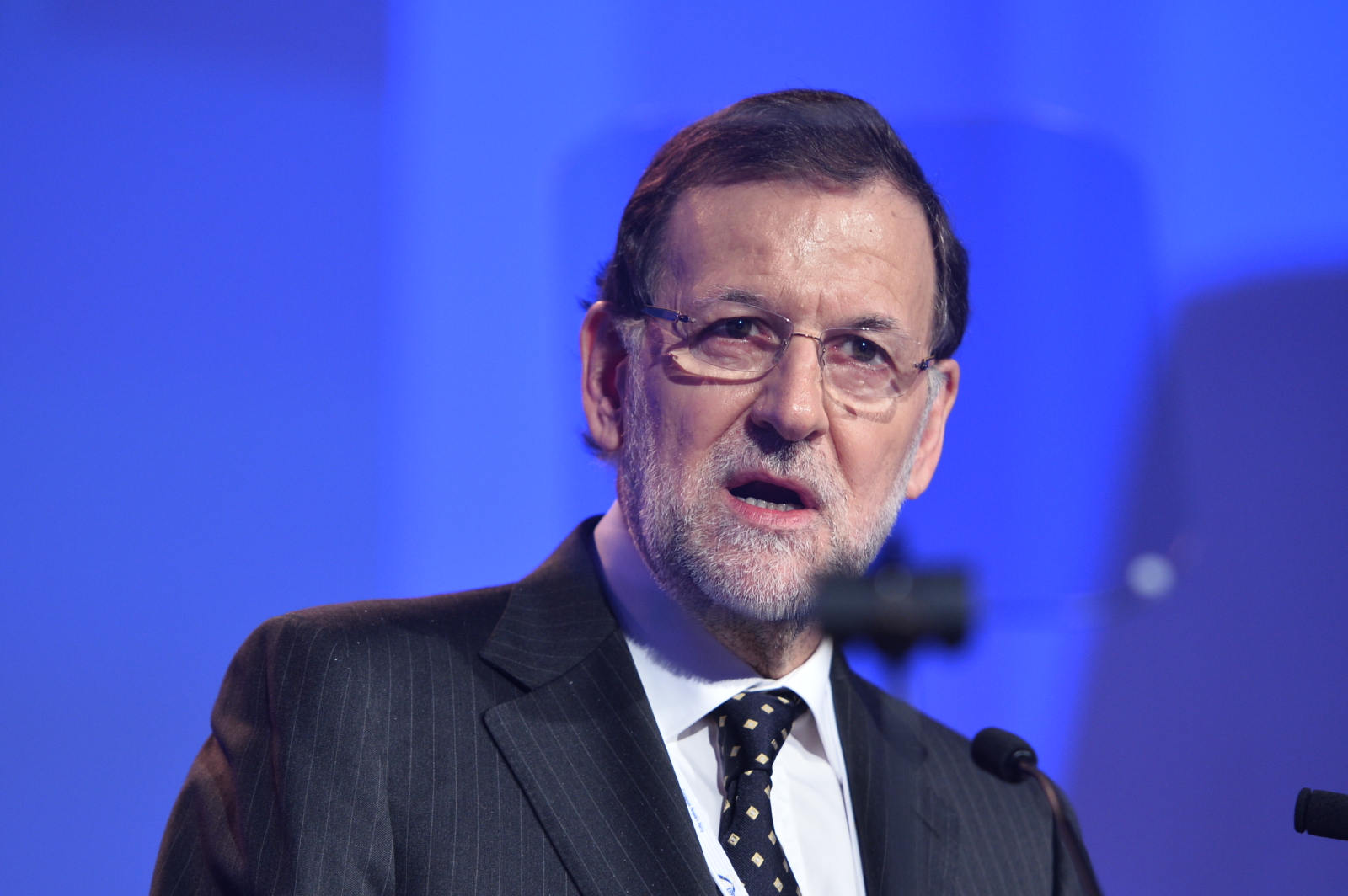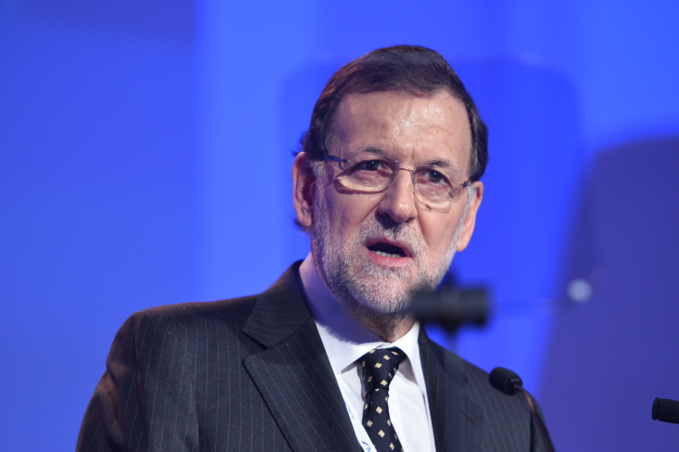The General Prosecutor's Office of Spain has already promised to "carefully study" the question of whether there is a crime in the actions of the Catalan authorities’. For Mariano Rajoy, however, the answer is obvious. Commenting on the Catalan initiative at an urgently convened press conference, the politician allowed himself a little more freedom than usual. He talked about "unacceptable blackmail, which has not been seen in Spain for a long time", about plans to "destroy the rule of law", about an attempt to "liquidate more than 500 years of national sovereignty", "recklessness from any point of view," and that "It's hard to find something more antidemocratic."
Mr. Rajoy has been particularly deraged by the fact that the Catalan parliament is going to adopt the law by an accelerated program, in one reading. Voting will be announced immediately after the regional deputies decide whether there is further sense in negotiating with Madrid, since he will not allow the Catalans to hold a legitimate and legally valid referendum.
At that, there is still a hope for a compromise with the authorities of Catalonia. There is a new vote of residents of the region scheduled for the autumn. Recall that in 2014, the Catalans failed to get a positive response from Madrid, and as a result, the region hold not a referendum, but a large-scale unofficial poll. Since then, the position of the Spanish authorities on the Catalan issue has not changed: there cannot be a referendum, since it is not stipulated by the Spanish constitution, yet it is impossible to exclude autonomy due to a number of specific issues.
Yesterday, Mariano Rajoy, criticizing the Catalan politicians, again called for them to dialogue. Among other things, the authorities of Spain proposed that Head of the regional government Carles Puigdemont speak in the Spanish parliament in a debate with Prime Minister Rajoy himself. Mr. Puigdemont, however, refrains from this step, arguing that at first the members of the two governments - Spain and Catalonia - must work out a compromise.
Catalonia, an autonomous region within Spain, has been trying to achieve independence for several years. In 2009-2010, individual municipalities held a number of unofficial referendums, during which the idea and slogans of independence firmly entered the daily political life of the country.
In 2012, supporters of independence won regional elections. They immediately began preparations for a new referendum, which should have legal consequences this time. Its implementation was planned for November 2014. A month before, however, the Spanish Constitutional Court had declared that the procedure was incompatible with the kingdom’s basic law. Therefore, a consultative poll about the future of Catalonia was held instead of a legally binding referendum.
The voting’s results showed that 80 percent of the participants spoke in favor of the autonomy’s complete independence. However, it did not have any consequences, except for the fact that the theme of Catalonia’s separation turned into a constant headache for Spain. Since then, it has become impossible to brush the problem aside.
It should be noted that the Catalan authorities resorted to cunning in order to provide the desired result. Thus, for two years they have lowered the age required for participation in the electoral process: from the age of 18 under the Spanish law to 16. In addition, the right to vote was granted to immigrants who do not have Spanish citizenship.
Be that as it may, but the Catalans have already had an overwhelming majority of votes for secession. And at the moment they announced their readiness to hold a new, this time, a decisive referendum in the autumn of 2017.
source: elpais.com
Mr. Rajoy has been particularly deraged by the fact that the Catalan parliament is going to adopt the law by an accelerated program, in one reading. Voting will be announced immediately after the regional deputies decide whether there is further sense in negotiating with Madrid, since he will not allow the Catalans to hold a legitimate and legally valid referendum.
At that, there is still a hope for a compromise with the authorities of Catalonia. There is a new vote of residents of the region scheduled for the autumn. Recall that in 2014, the Catalans failed to get a positive response from Madrid, and as a result, the region hold not a referendum, but a large-scale unofficial poll. Since then, the position of the Spanish authorities on the Catalan issue has not changed: there cannot be a referendum, since it is not stipulated by the Spanish constitution, yet it is impossible to exclude autonomy due to a number of specific issues.
Yesterday, Mariano Rajoy, criticizing the Catalan politicians, again called for them to dialogue. Among other things, the authorities of Spain proposed that Head of the regional government Carles Puigdemont speak in the Spanish parliament in a debate with Prime Minister Rajoy himself. Mr. Puigdemont, however, refrains from this step, arguing that at first the members of the two governments - Spain and Catalonia - must work out a compromise.
Catalonia, an autonomous region within Spain, has been trying to achieve independence for several years. In 2009-2010, individual municipalities held a number of unofficial referendums, during which the idea and slogans of independence firmly entered the daily political life of the country.
In 2012, supporters of independence won regional elections. They immediately began preparations for a new referendum, which should have legal consequences this time. Its implementation was planned for November 2014. A month before, however, the Spanish Constitutional Court had declared that the procedure was incompatible with the kingdom’s basic law. Therefore, a consultative poll about the future of Catalonia was held instead of a legally binding referendum.
The voting’s results showed that 80 percent of the participants spoke in favor of the autonomy’s complete independence. However, it did not have any consequences, except for the fact that the theme of Catalonia’s separation turned into a constant headache for Spain. Since then, it has become impossible to brush the problem aside.
It should be noted that the Catalan authorities resorted to cunning in order to provide the desired result. Thus, for two years they have lowered the age required for participation in the electoral process: from the age of 18 under the Spanish law to 16. In addition, the right to vote was granted to immigrants who do not have Spanish citizenship.
Be that as it may, but the Catalans have already had an overwhelming majority of votes for secession. And at the moment they announced their readiness to hold a new, this time, a decisive referendum in the autumn of 2017.
source: elpais.com



















